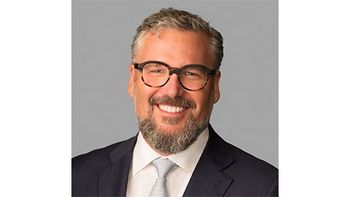
Savsu Technologies offers deep-frozen cold-chain solutions
Containers and data monitoring for cell-therapy and related biologic materials
The life sciences cold chain business is dominated by refrigerated products—2-8°C drugs, vaccines and diagnostic materials. But clinical researchers involved with the newer biologic materials, including living cells, depend on liquid nitrogen (LN2) or dry ice to keep the materials frozen. And in recent years, the specs for these frozen materials have expanded to a number of ranges, including -80°C and colder.
Now, Savsu Technologies is offering a range of shipping containers said to cover the entire temperature range (CRT, 2-8°C, -80°C and -196°C) for source materials and manufactured cell therapies; all sharing a common data system, specifically designed for live cell therapy companies. Now called the DV line, the two new models share a new evo Fusion System for containment and charging. The two new models are the evo DV-4 with four-day “autonomy” (Savsu’s term for unattended operation) for domestic shipments and the DV-10 with 10-day autonomy for international shipments. The DV-4 is approximately half the weight of standard, full size, large neck, dry vapor shippers, says the company.
The product line also benefits from the company’s evo Vision, a cloud-based monitoring and data-communciations system; evo Vision links into evo Cold Chain 2.0, to enable shipments to be tracked and monitored en route.
"Despite numerous requests from our customers to develop an evo shipper in the -196°C range, we said we wouldn't do it unless we could dramatically advance the existing dry vapor shipper technology," said Bruce McCormick, president of Savsu, in a statement. With the development of the new evo Fusion technology powering our new evo DV line, we have significantly advanced dry vapor shipper technology, which hasn't changed much in 40 years. We believe these are important new products to support the commercialization of new personalized cell therapies."
Newsletter
Stay ahead in the life sciences industry with Pharmaceutical Commerce, the latest news, trends, and strategies in drug distribution, commercialization, and market access.





